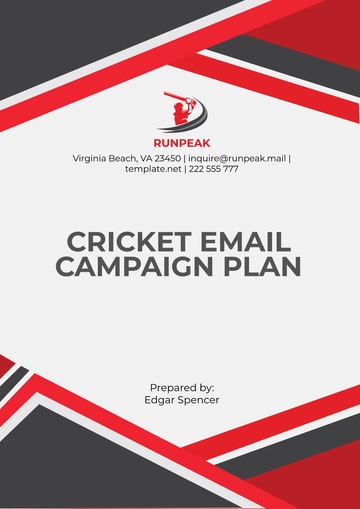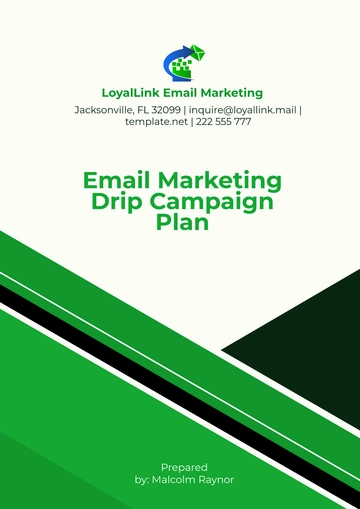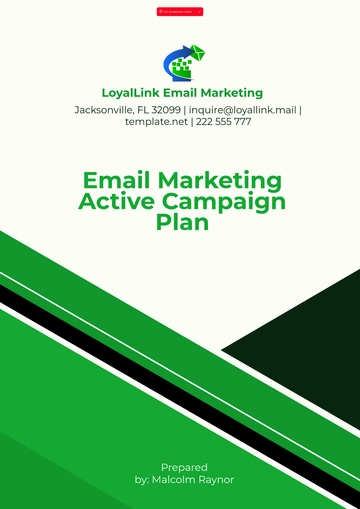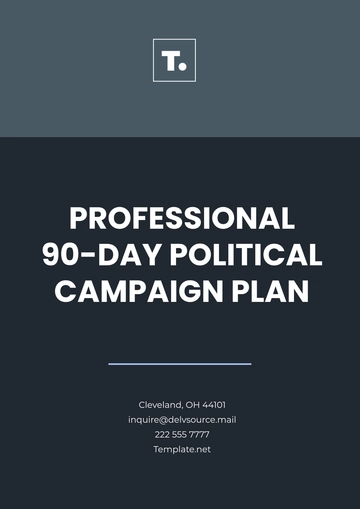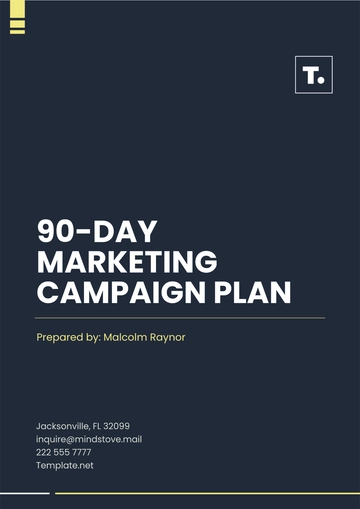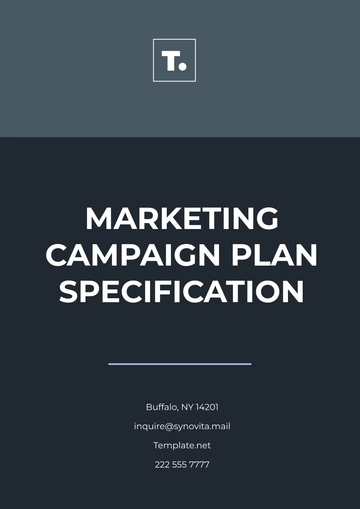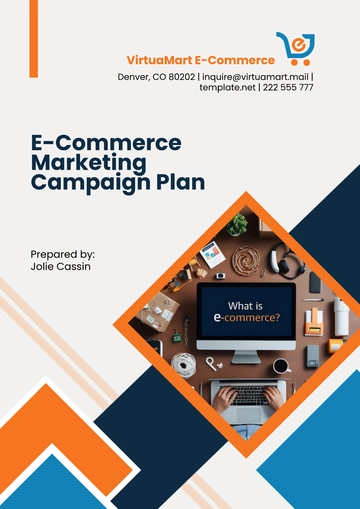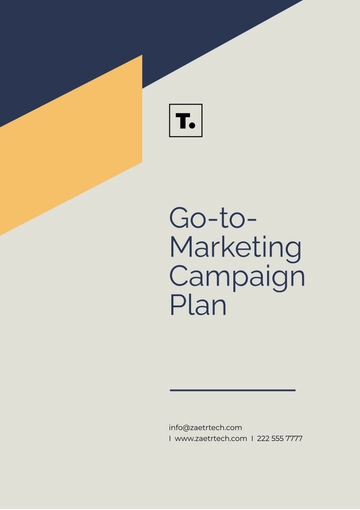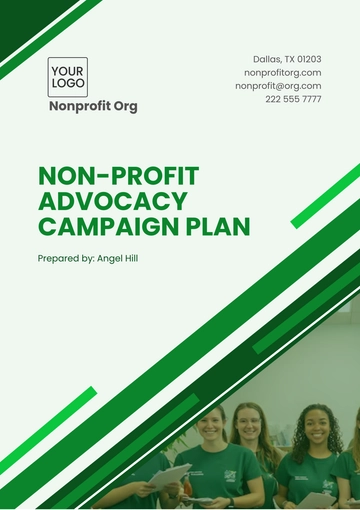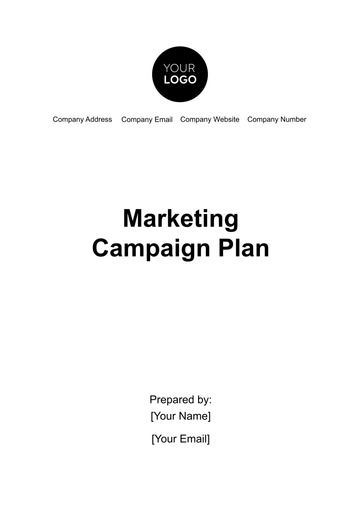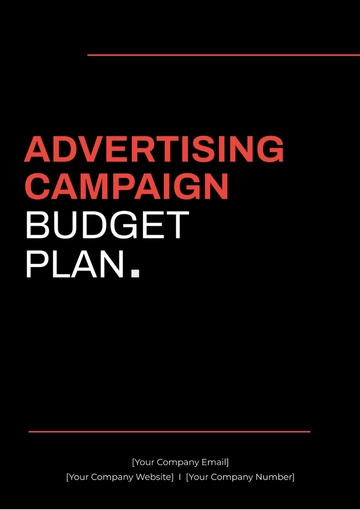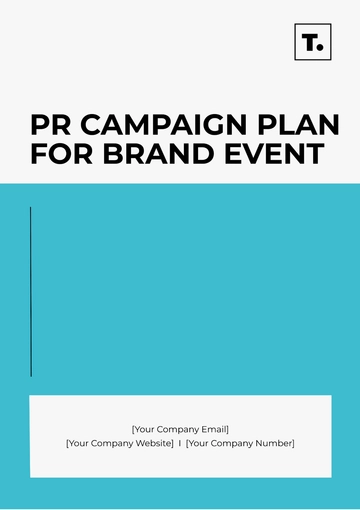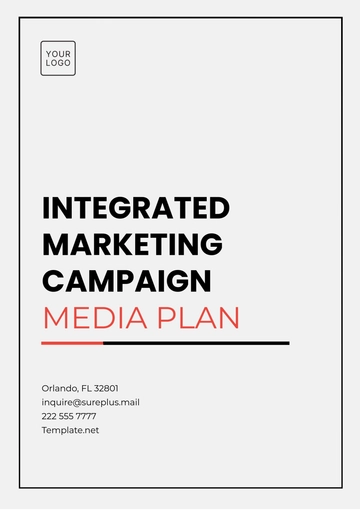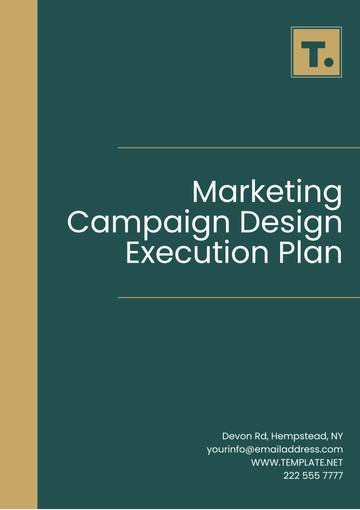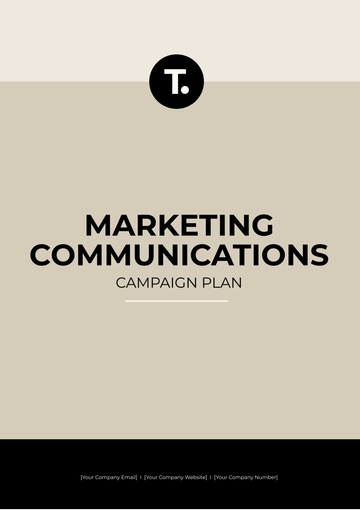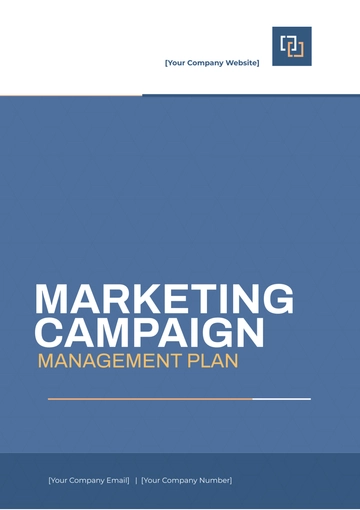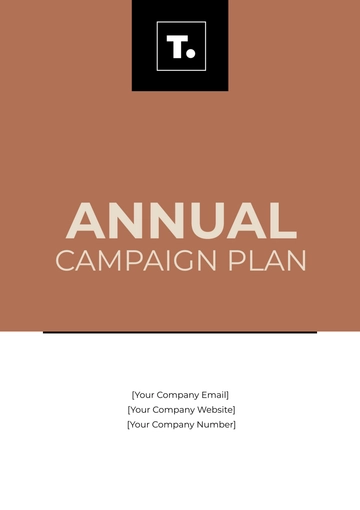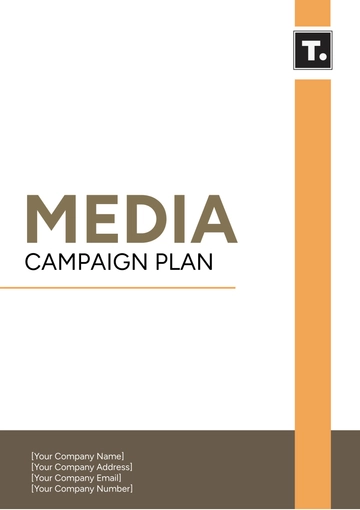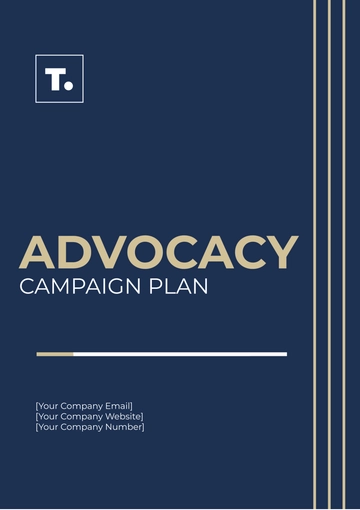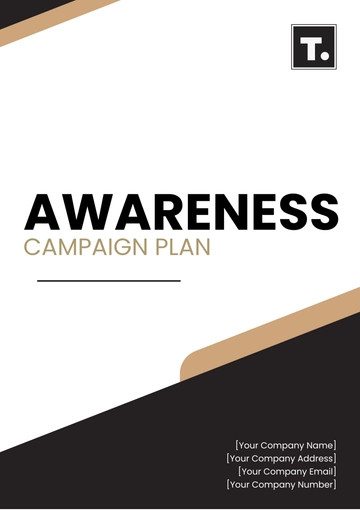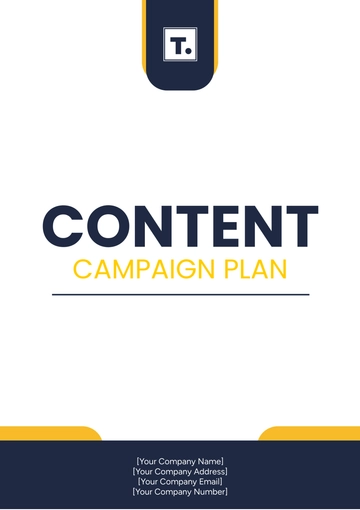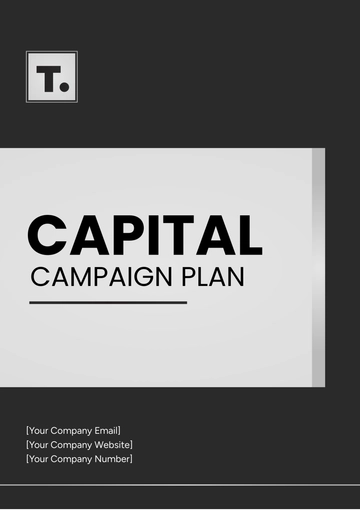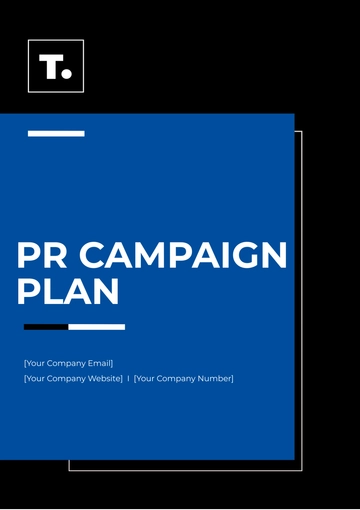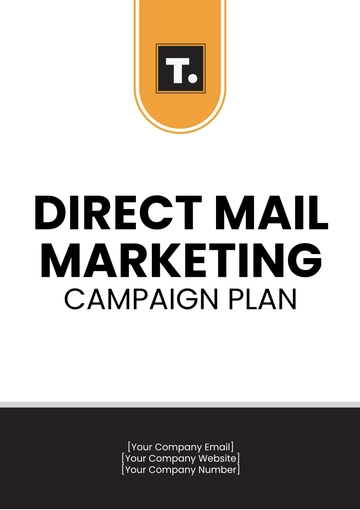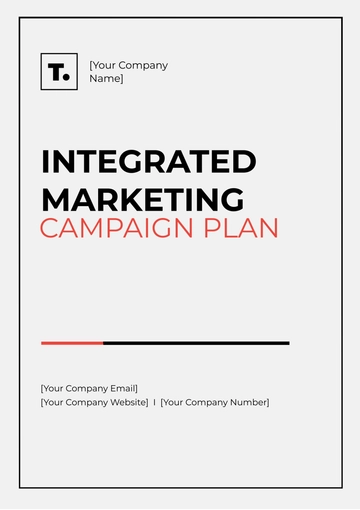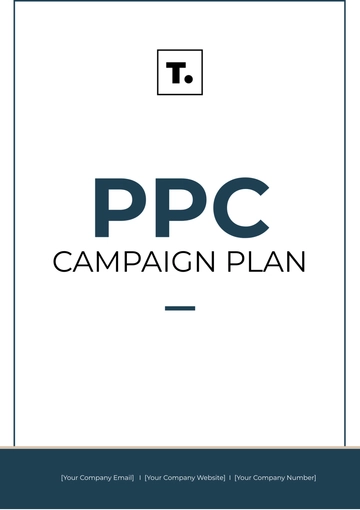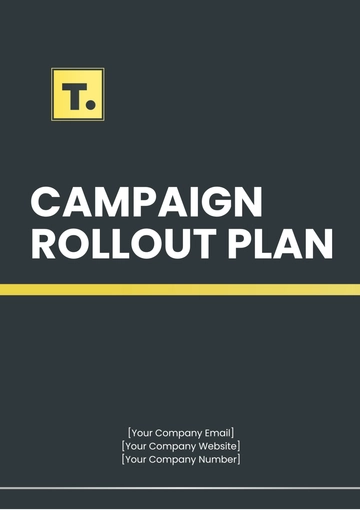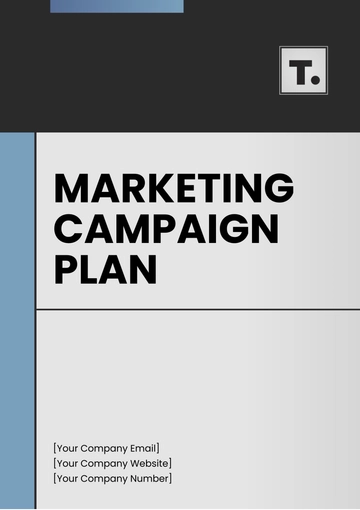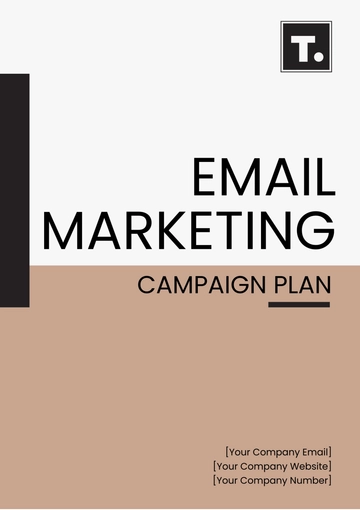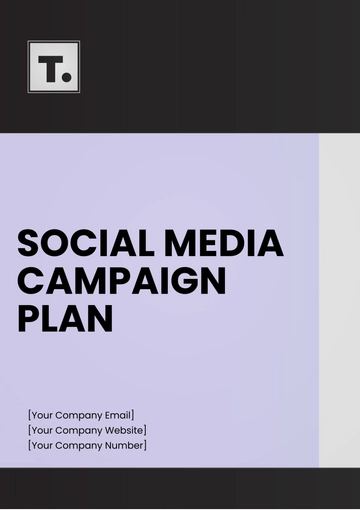Free Lead Generation Campaign Plan
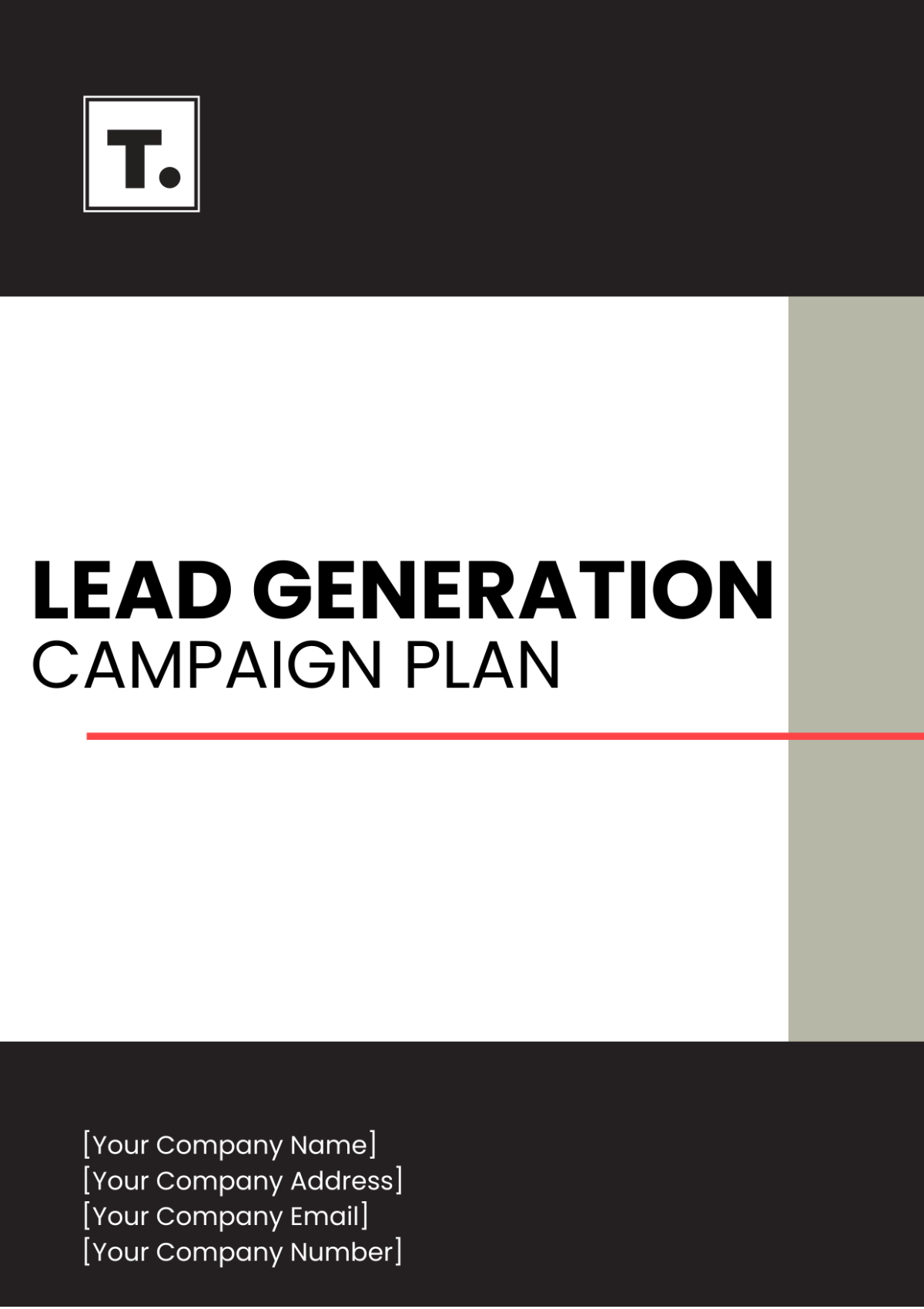
I. Executive Summary
A. Campaign Overview
The objective of this campaign is to generate high-quality leads for [Your Company Name]. By leveraging targeted strategies, we aim to attract potential customers and convert them into leads. The campaign will utilize a mix of digital marketing channels to reach our audience effectively.
B. Key Goals and Metrics
Generate 200 qualified leads per month.
Achieve a conversion rate of 15% from visitors to leads.
Increase website traffic by 30%.
II. Target Audience
A. Demographics
Age: 25-45
Gender: All
Location: [Your Target Location]
Income Level: $60,000 - $150,000 annually
Occupation: Tech professionals, startup founders, business executives
B. Psychographics
Interests: Technology advancements, business growth, professional development
Values: Innovation, efficiency, reliability
Lifestyle: Busy professionals seeking productivity solutions
III. Lead Magnets
A. Types of Lead Magnets
E-books/Guides: Provide valuable information related to productivity tools for professionals.
Webinars: Host live sessions discussing the latest trends in productivity and efficiency.
Free Trials/Demos: Offer a free trial or demo of [Your Product/Service].
Discounts/Offers: Provide special discounts or promotional offers.
B. Development and Implementation
Content Creation: Develop high-quality content for lead magnets.
Design: Create visually appealing designs for e-books, landing pages, and promotional materials.
Distribution: Share lead magnets through email marketing, social media, and the company website.
IV. Conversion Tactics
A. Landing Pages
Design and Layout: Ensure clean, professional, and user-friendly designs.
Call-to-Action (CTA): Use strong and clear CTAs like "Download Now" or "Sign Up".
Forms: Keep forms simple and request essential information only.
B. Email Marketing
Email Capture: Use forms and CTAs to capture email addresses.
Nurture Campaigns: Develop a series of emails to educate and nurture leads.
Personalization: Personalize emails using lead data to increase engagement.
C. Social Proof
Testimonials: Showcase customer testimonials and case studies.
Reviews: Highlight positive reviews from trusted sources.
Endorsements: Use endorsements from industry influencers.
V. Key Messages
A. Core Message
Communicate the unique value proposition and benefits of the [product/service].
B. Supporting Messages
Highlight features and advantages
Include customer testimonials and case studies
Offer time-limited promotions
VI. Marketing Channels
A. Digital Advertising
Google Ads: Run targeted ads based on keywords related to our productivity software.
Social Media Ads: Utilize platforms like Facebook, LinkedIn, and Instagram to reach the target audience.
B. Content Marketing
Blog Posts: Write informative blog posts that address audience pain points and provide solutions.
SEO: Optimize content for search engines to increase organic traffic.
C. Social Media Marketing
Platforms: Focus on LinkedIn, Twitter, and Instagram.
Content: Share valuable content, engage with followers, and use targeted ads.
VII. Budget Allocation
Category | Budget Allocation |
|---|---|
Online Marketing | $50,000 |
Offline Marketing | $10,000 |
Creative Development | $15,000 |
Contingencies | $5,000 |
VIII. Performance Metrics
A. Performance Indicators
Number of Leads Generated
Lead Conversion Rate
Cost Per Lead
ROI on Campaign Spend
B. Analytics Tools
Google Analytics
CRM System
Email Marketing Software
IX. Timeline
Task | Start Date | End Date |
|---|---|---|
Market Research | [Start Date] | [End Date] |
Content Creation | [Start Date] | [End Date] |
Campaign Launch | [Launch Date] | [End Date] |
Performance Review | [Review Date] | [End Date] |
X. Risk Management
A. Potential Risks
Low conversion rates
Overrun budget
Poor engagement
B. Mitigation Strategies
Regular performance tracking
Flexible budgeting
Iterative content optimization
XI. Conclusion
This Lead Generation Campaign Plan provides a structured approach for [Your Company Name] to attract, engage, and convert potential customers into leads. By executing this plan, we aim to achieve our outlined objectives and contribute to the overall growth of the company.
- 100% Customizable, free editor
- Access 1 Million+ Templates, photo’s & graphics
- Download or share as a template
- Click and replace photos, graphics, text, backgrounds
- Resize, crop, AI write & more
- Access advanced editor
Generate quality leads with Template.net's Lead Generation Campaign Plan Template. This editable and customizable template, designed for ease of use in our Ai Editor Tool, helps you create effective strategies to attract and convert leads.
You may also like
- Finance Plan
- Construction Plan
- Sales Plan
- Development Plan
- Career Plan
- Budget Plan
- HR Plan
- Education Plan
- Transition Plan
- Work Plan
- Training Plan
- Communication Plan
- Operation Plan
- Health And Safety Plan
- Strategy Plan
- Professional Development Plan
- Advertising Plan
- Risk Management Plan
- Restaurant Plan
- School Plan
- Nursing Home Patient Care Plan
- Nursing Care Plan
- Plan Event
- Startup Plan
- Social Media Plan
- Staffing Plan
- Annual Plan
- Content Plan
- Payment Plan
- Implementation Plan
- Hotel Plan
- Workout Plan
- Accounting Plan
- Campaign Plan
- Essay Plan
- 30 60 90 Day Plan
- Research Plan
- Recruitment Plan
- 90 Day Plan
- Quarterly Plan
- Emergency Plan
- 5 Year Plan
- Gym Plan
- Personal Plan
- IT and Software Plan
- Treatment Plan
- Real Estate Plan
- Law Firm Plan
- Healthcare Plan
- Improvement Plan
- Media Plan
- 5 Year Business Plan
- Learning Plan
- Marketing Campaign Plan
- Travel Agency Plan
- Cleaning Services Plan
- Interior Design Plan
- Performance Plan
- PR Plan
- Birth Plan
- Life Plan
- SEO Plan
- Disaster Recovery Plan
- Continuity Plan
- Launch Plan
- Legal Plan
- Behavior Plan
- Performance Improvement Plan
- Salon Plan
- Security Plan
- Security Management Plan
- Employee Development Plan
- Quality Plan
- Service Improvement Plan
- Growth Plan
- Incident Response Plan
- Basketball Plan
- Emergency Action Plan
- Product Launch Plan
- Spa Plan
- Employee Training Plan
- Data Analysis Plan
- Employee Action Plan
- Territory Plan
- Audit Plan
- Classroom Plan
- Activity Plan
- Parenting Plan
- Care Plan
- Project Execution Plan
- Exercise Plan
- Internship Plan
- Software Development Plan
- Continuous Improvement Plan
- Leave Plan
- 90 Day Sales Plan
- Advertising Agency Plan
- Employee Transition Plan
- Smart Action Plan
- Workplace Safety Plan
- Behavior Change Plan
- Contingency Plan
- Continuity of Operations Plan
- Health Plan
- Quality Control Plan
- Self Plan
- Sports Development Plan
- Change Management Plan
- Ecommerce Plan
- Personal Financial Plan
- Process Improvement Plan
- 30-60-90 Day Sales Plan
- Crisis Management Plan
- Engagement Plan
- Execution Plan
- Pandemic Plan
- Quality Assurance Plan
- Service Continuity Plan
- Agile Project Plan
- Fundraising Plan
- Job Transition Plan
- Asset Maintenance Plan
- Maintenance Plan
- Software Test Plan
- Staff Training and Development Plan
- 3 Year Plan
- Brand Activation Plan
- Release Plan
- Resource Plan
- Risk Mitigation Plan
- Teacher Plan
- 30 60 90 Day Plan for New Manager
- Food Safety Plan
- Food Truck Plan
- Hiring Plan
- Quality Management Plan
- Wellness Plan
- Behavior Intervention Plan
- Bonus Plan
- Investment Plan
- Maternity Leave Plan
- Pandemic Response Plan
- Succession Planning
- Coaching Plan
- Configuration Management Plan
- Remote Work Plan
- Self Care Plan
- Teaching Plan
- 100-Day Plan
- HACCP Plan
- Student Plan
- Sustainability Plan
- 30 60 90 Day Plan for Interview
- Access Plan
- Site Specific Safety Plan
